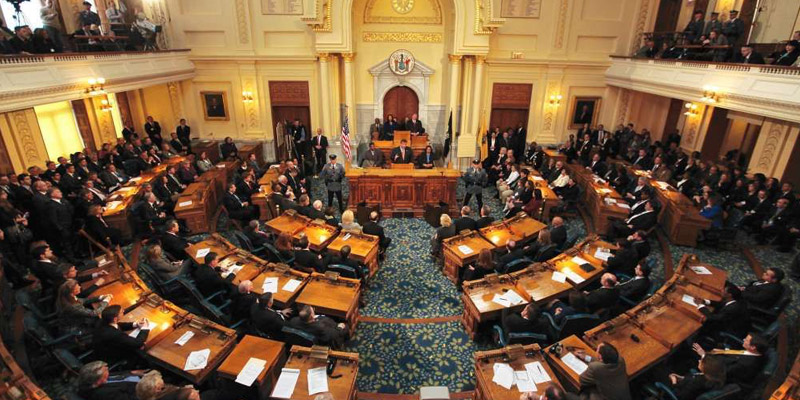Last week the New Jersey State Senator passed a bill, S-3214, mandating that Acting Commissioner Angelica Allen-McMillen “require each school district to submit data on student academic outcomes within 30 days of the effective date of this act. The data shall be used by the commissioner to develop a learning loss report that identifies and quantifies the impact of the COVID-19 public health emergency on student outcomes.” (See coverage here, here and here; the latter is a letter from civil rights groups pleading for states to measure student learning loss because it “is imperative that we have accurate information about how our students are performing so that resources can be directed to schools and students in need.”)
The 5-1 vote means the bill now moves on to the full Senate and S-3214 is now on the Senate’s docket tomorrow.
Concurrently, the State Assembly just issued a companion bill proposal, A-5125, sponsored by Assemblywomen Angela McNight, Pamela Lampitt, and Valerie Vainieri Huttle. The bill statement, in part, requires Commissioner Allen-McMillen to:
Prepare two reports on the impact of the COVID-19 public health emergency on public schooling. The first report will be a learning loss report that identifies and quantifies the impact of the COVID-19 public health emergency on student academic outcomes. The second report will be a report on the continuation of school services during the same period.
Under the bill, the commissioner must collect data on student academic outcomes from all school districts within thirty days of the bill’s effective date.
The commissioner will require each school district to submit the required data within 30 days of the bill’s effective date. The data must be provided for all students enrolled in the school district in the time period beginning on the date of the school district’s closure in March of 2020 and ending on the bill’s effective date, unless otherwise specified by the commissioner.
The bill directs the commissioner to prepare and submit a report to the Governor and to the Legislature within 60 days of the bill’s effective date. The learning loss report must:
(1) identify and quantify the impact of the COVID-19 public health emergency on overall student academic outcomes, and include an analysis disaggregated by district size, grade level, and academic subject, where practicable; and
(2) identify and quantify the impact of the COVID-19 public health emergency on student achievement disparities that existed prior to the public health emergency, and include an analysis of student academic outcomes disaggregated by race, ethnicity, gender, eligibility for free or reduced price lunch under the National School Lunch Program, eligibility for special education services, and English language learner designation, where practicable.
The bill restricts the commissioner’s use of the collected data to the bill’s purposes.
At the time of the Senate bill’s passing the Education Committee last week, Chair Teresa Ruiz said, “Hopefully, this bill doesn’t get to the Senate floor because DOE will take action of its own.”
With no sign of DOE leadership implementing quick, no-stakes measurements of how COVID has affected student growth (perhaps an internal measurement of NJEA’s stranglehold on DOE leaders and the Governor’s Office), the Legislature will do the DOE’s job. Hopefully both Houses will pass the bill and Gov. Phil Murphy won’t veto it in deference to his patrons. If this sequence of events occurs, then the Legislature and the Governor’s Office can say, with pride, that they privilege student needs over lobbyists’ money.
Stay tuned for further coverage.



